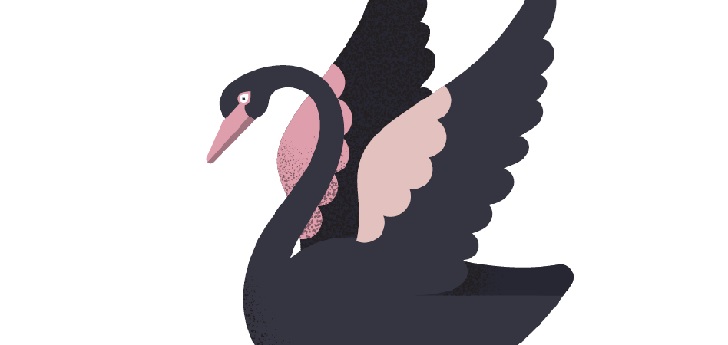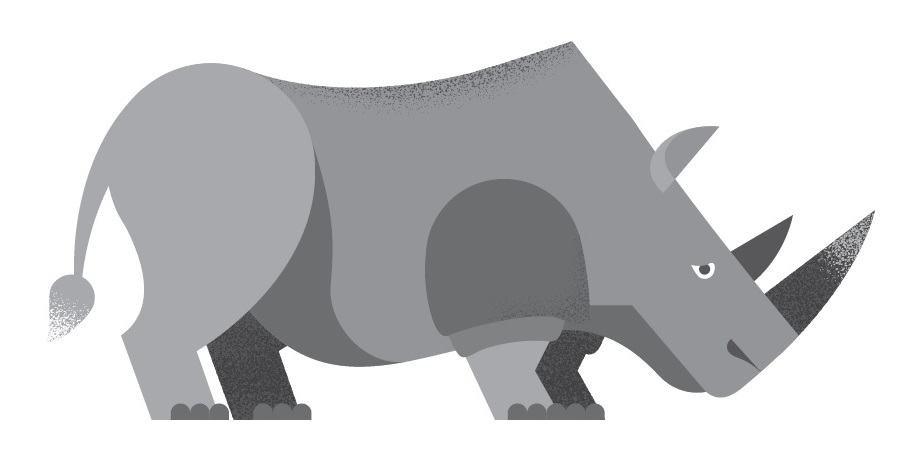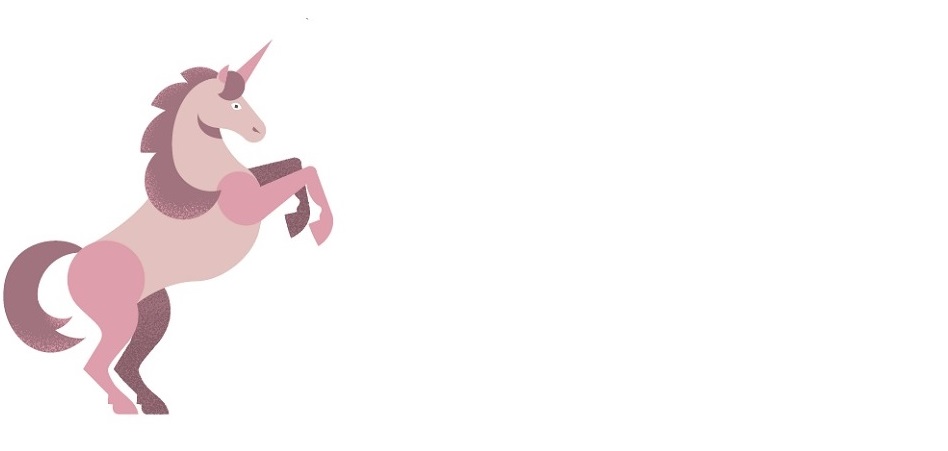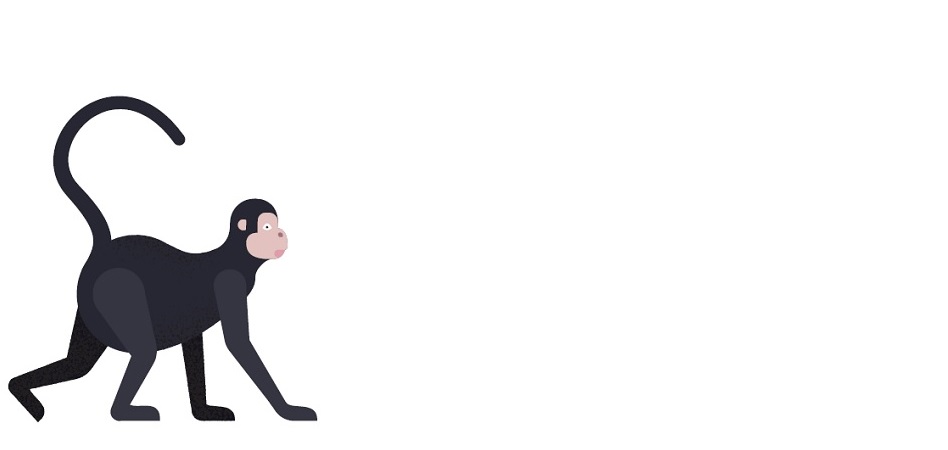Black swans, gray rhinos and other jungle animals: the unknowns of fashion after the coronavirus
As a black swan, the Covid-19 outbreak is even more transformative than events such as the Arab Spring, or even the fall of the Berlin Wall.

“Whether we expect another invasion or not, our views of the human future must be greatly modified by these events. We have learned now that we cannot regard this planet as being fenced in and a secure abiding place for Man; we can never anticipate the unseen good or evil that may come upon us suddenly out of space.” This excerpt from The War of the Worlds, a science fiction work written by H. G. Wells in 1898, collects one of the narrator’s final reflections of the story, in which some aliens try unsuccessfully to invade Earth.
The learning of the Wells character is today, more than a century later, fully valid. The species’ unexpected enemy is not a hostile and genocidal alien, but it undoubtedly forces all of humanity to start a phase of reflection on itself, its future and its relationship with the environment. Such is the effect produced by this invisible Godzilla that will impact the rules of economic activity, the consumer economy and, of course, the international fashion industry.
As a black swan, the Covid-19 is even more transformative than the Arab Spring, or even the fall of the Berlin Wall. The difference with the previous unexpected events is that its origin is not in the action of men, and it is also a phenomenon that the human being himself cannot control. The Covid-19 warns man of his transience in the universe: at the close of this report, a third of humanity was confined to their homes.
Once again Francis Fukuyama’s The End of History and the Last Man is questioned, in which he predicted that, after the fall of the Soviet Union, human history as a struggle between ideologies has ended in favor of the economy. On the contrary, the coronavirus crisis has to do the same with the economic model, with the environmental movement and the transformation of the economy towards circularity, with post-truth and with the new world geopolitical order.
The coronavirus acts as an accelerator of changes that were already underway
But above all it has to do with the once-refuted dominance of man over nature and Ulrich Beck’s risk society, in which social, political, economic and industrial risks tend more and more to escape from the institutions of control and protection of industrial society.
“The ground has vanished under our feet, every point of support has disappeared suddenly and with a thud and the end of the abyss is not seen,” said a businessman linked to the fashion sector after a week of confinement. What unknowns does the coronavirus crisis leave on the future of humanity and the economy? What should a sector like fashion have to adhere to at the start of the third decade of the 21st century?
In the midst of a crisis with an uncertain end, it is impossible to offer a clear perspective on what is going to happen: not even the usual analysts of the sector and of the economic world in general dare to draw the road map that the economy should follow, and even less fashion the day after. But it is possible to ask the questions and possible answers of what, perhaps, the coronavirus may entail.

Just as some wars were an accelerator of technological and industrial progress in countries like the United States, the United Kingdom, or Germany, not to mention its effect on ancient civilizations, the crack of the Covid-19 can accelerate transformations that were already underway. An event that represents Nassim Taleb’s definition of a black swan like no other ignites the fire of change on the planet. Gray rhinos such as sustainability, inequality or deglobalization, among others, become more visible than ever for a sector that plays like few others in the consumer economy (or hyperconsumption) and in the global economic system, both in the chains of supply as in commercial. The term, coined by Michele Wucker, refers to a highly probable, imminent threat.
Uncertainty had already been imposed in recent years as a reality with which fashion companies and all sectors had to deal. But after the coronavirus crisis, the perception of risk takes on a new dimension: when the unpredictable has been witnessed in such a brutal and violent way (at the time of this edition, more than 32,000 deaths from this virus were counted worldwide), it is more natural to think that something similar can happen again. Now that risk perception has changed, what are black swans, gray rhinos, and other jungle animals for fashion?
In a more vulnerable, more dangerous and slower environment, cash is more important than profit, and profit more important than revenue
De-globalization
From Donald Trump’s America First to Brexit, nationalism and a retrograde movement around globalization and multilateralism was already very present on the global political scene before the arrival of the pandemic, which has erected as a new actor in global geopolitics. Precisely, a crisis that has become global thanks to globalization has become a deglobalizing element.
If in recent years borders were closed to immigration from poor countries, in recent months they have been closed to prevent the entry of infections from other countries. This has been followed by intervention on global supply chains of certain products to deal with the health crisis: on March 13, Germany restricted or banned exports of up to 1,324 products, including acetaminophen and medical devices, that the country wanted keep for own consumption.
Voices emerge in favor of local industry, against an inefficient European Union or even the World Health Organization (WHO), while the biggest powers, the United States and China, accuse each other of causing the pandemic.
The European Union, the most advanced experiment in multinational political, economic and even monetary integration since World War II, can emerge from the death crisis after Brexit, or reinforced and more integrated with initiatives that are already being outlined, such as a European Marshall Plan or the so-called Coronabonos. At the moment, France, Portugal, Italy and Spain face countries like Germany and the Netherlands, calling themselves “disgusting”.
China gains positions in the new world order
“Though we’re oceans apart, a shared moon connects us.” It is the striking phrase that was written in Spanish and Chinese on the pallets of medical equipment that Inditex donated to Spanish public health to deal with the coronavirus and, of course, came from China.
Another possible consequence of the crisis is the increase in China’s economic influence in the world. Although it began by concealing the epidemic, Xi Jinping's China has been highly effective in fighting the virus, thanks in large part to tight population control with the help of technology. Furthermore, as the pandemic spreads and the United States, much of Europe, Latin America, and Africa begin to fall ill, China has already been cured.
At the end of March, as the number of infections spiked in the United States, which became the new global epicenter of the pandemic, China took advantage of the occasion to increase its international influence. On the 17th, Jinping and Pedro Sánchez, President of the Spanish Government, held a telephone talk with eloquent content: on the one hand, China will help Spain to overcome the virus, and, after the crisis, China proposes to increase exchanges and cooperation in many areas. The Asian giant would be willing, for example, to increase imports of high-quality products from Spain.
China’s actions with Italy have been very similar, installing an unequivocal idea in the country’s collective imagination: while the European Union neglects the requests of the most affected countries in the south of the continent, aid must come from the Far East.
After a crisis like this one, consumers and companies will tend to seek security
Environmental sustainability
The Covid-19 has suddenly put on standby what was the planet's biggest concern to date: global warming and protecting the environment. Confined to their homes, the world's inhabitants have put aside concern for ecology and sustainability to worry about not getting sick. Activist Greta Thunberg, Time Magazine’s Person of the Year in 2019, has stepped off today’s map as fast as coronavirius has entered the picture.
However, a deadly and terrifying enemy such as the coronavirus only makes an often distant threat such as that of depletion of resources or rising sea levels more real.
Why? In the collective imagination, and there are several entrepreneurs who have repeated it in recent weeks, the idea that the pandemic is a kind of “revenge” of nature begins to spread. Furthermore, the end of the world (due to a hypothetical depletion of natural resources) was seen until now as something distant, while now the world has lowered its bar of risk.
The paralysis of the world economy, with closed factories and no mobility, will have an impact, as is already being demonstrated, on the pollution of the planet. On March 27, the European Space Agency showed images of the continent with a significant reduction in nitrogen dioxide concentrations in large cities such as Paris, Milan or Madrid between March 14-25, 2020, coinciding with the start of the quarantine. in Spain.
When the coronavirus crisis is over, these data can give wings to sustainability and Covid-19 can be the great driver of the transformation of the economy towards circularity and, particularly, towards a decrease in prevailing hyperconsumption in the West.
Inequality
Another gray rhino that the West is doggedly ignoring is the growing inequality that exists on the planet. According to Oxfam data, 735 million people worldwide live in extreme poverty, while the richest 1% in the world have more than double the wealth of 6.9 billion people.
Despite the criticism received, particularly since the collapse of the Rana Plaza building in Bangladesh in 2013, the truth is that the textile and footwear industry has been a great catalyst for industrialization (and escape from poverty for hundreds of thousands of people) from third world countries. But it is also true that it bases its supply system on a deeply unequal world that, at times, gives alarm bells. The question of how far fashion can tighten the rope of inequality in the world remains on the table.
The fashion sector has spent years working on control mechanisms against supply chain abuses beyond the reach of multinationals, but the system is far from immune to the breakdown of the production chain. In January 2019, labor protests over a rise in wages forced dozens of factories to be closed in Bangladesh, while six years earlier, in Cambodia, similar protests ended with several deaths in clashes with the police.
After a crisis like the coronavirus, which has exposed the supply chains of the sector’s giants (first with the paralysis of China and then with the closure of countries such as India or Bangladesh), companies will automatically tend to seek security, which will involve working with fewer but more stable suppliers and, probably, geographically closer.
After the coronavirus crisis, risk perception takes on a new dimension
Authenticity and transparency
In a world where the expression fake news has almost slipped into the dictionary, authenticity has become the most coveted goal for brands. When everyone cheats, consumers look for brands that don't, and hence the rise of young companies that show their founders talking to the camera or firms that claim to expose all their suppliers.
In fashion, another sign of this prestige of authenticity is how aesthetic canons have begun to change and curvy, un-makeup women have banished the perfect Victoria’s Secret angels, at least among younger generation. The field has been paved for hoaxes, superstitions, and conspiracy theories that have been passed down without pause among a frightened population, but paradoxically more educated than ever.
With the population confined to their homes and exposed to all kinds of impacts have exploded. When the inhabitants of the planet leave their homes, they will continue to seek that security and will resort to authentic and transparent brands, even if only in appearance. Again, the Covid-19 has accelerated a movement that was already taking place.

Communities
If a crisis like the current one can make globalization take a step backwards, the direct consequence will be that communities will once again be relevant. The Internet and social networks allowed all lovers of country music in ska version to join, but now communities will refer to physical closeness.
In big cities, the neighbors were nothing more than people you came across the ladder, but a situation like the one the world is experiencing today is making ties tighter. It remains to be seen whether this phenomenon will continue in the neighborhoods, but different sociologists are beginning to refer to communities as an element that provides security.
The communities also provide care, and after months confined at home protecting us or pending our loved ones, brands must take care of us. Another upward value will therefore be the proximity to consumers and protection. If Nike has reigned in recent years with the culture of victory and warrior now perhaps the brands that speak of “we” will prevail.
Overnight, seclusion has revealed telework to millions of people
Digital transformation
Confined to their homes, citizens of developed countries have discovered that you can exercise next to a window through an app without paying the gym fee, and those who have not yet got on the ecommerce cart have entered it. if only to buy toilet paper. Although the human being is a social animal and going to the gym or shopping has part of it, after the crisis perhaps we will discover that there are expenses that we can do without or that we can incur in other ways.
On the other hand, confinement overnight has revealed telework to millions of people (and companies) and has promoted the incorporation of technological tools for communications and work organization at full speed. Although all meetings have been held by Zoom for years in the most sustainable circles of the fashion industry to reduce the carbon footprint derived from travel, the truth is that the bulk of humanity had never heard of this application.
The consumer will finish its digital transformation, just as companies will, but fashion will still have a pending challenge on the table. If the digital transformation had been complete in the sector, Industry 4.0 would have already been implanted, mitigating what will be the sector's great enemy when stores reopen: stock. If production on demand was already a pending task for the sector, the tons of devalued stock that companies will find after emerging from the coronavirus crisis will make it an even more pressing task.

Less is more
If people have lowered their risk threshold, so have companies. In a world in which, overnight, stores may be completely closed and consumption may remain at zero, economic actors will think twice before taking risks.
In a sector in which consumption slows down year after year, at least in developed countries, and in which the product is no longer among the priorities of consumers, such as fashion, over the last year the number of companies that have started to stop having growth as their maximum has gone up. “Less is more” or “profitability over growth” are two expressions that have been installed in the steering committees.
On the other hand, consumers had also started to change. In 2019, for example, the Swedish term köpskam was coined to define the shame of buying clothes. After months confined, perhaps the consumer feels a crazy desire to renew their entire wardrobe, but perhaps also, after having had time to order their wardrobe, they will have realized the number of clothes they have and do not wear. Less is more, applied to companies or people, leads to an intrinsically slower world. In a more vulnerable, more dangerous, and slower environment, cash is more important than profit, and profit more important than revenue. A large network of stores has become evident, for example, as a burden at a time like today.
The highest drop in fashion sales will be in Southern Europe
Utopia vs. dystopia
Thomas Moro imagined in Utopia an unknown island in which the ideal organization of society would be achieved, but the truth is that science fiction literature has not delved much throughout history into perfect futures. By contrast, from Aldous Huxley’ A Happy World to George Orwell's 1984, to Ray Bradbury’s Fahrenheit 451, Philip K. Dick’s Blade Runner, or Evgueni Zamiatin’s Us, dystopias and post-apocalyptic novels have blown the air much more. imagination of the great authors of the genre.
In short, these writers project their fears about the drift of the current world (the one they live in, in any case, as happened to Orwell in 1948) to imagine where the system could go in the future (in this case, to 1984). That is, how the world could degenerate.
It does not take much imagination to glimpse an immediate future in which the world will emerge from the confinement poorer and, of course, with consumers less willing to spend money on fashion. According to the first estimates of the Boston Consulting Group, the highest drop in fashion sales will occur precisely in southern Europe, with a drop in consumption that could reach 40%.

Skyrocketing unemployment, closure of hundreds of companies and bulky public debts will generally make up a more impoverished world, but one that sooner or later will overcome the shock of the hard blow received. A new normality is about to take shape and, after the absolute halt, humanity will set out somewhere. What stage is fashion in?
The most optimistic vision is that of a more mature world in which people and companies have learned some lessons and that will therefore be more transparent and sustainable. In it, the values of power and victory are reconfigured in favor of a more relaxed and holistic conception of happiness and well-being. The world will take a roadmap that is actually very clear: inclusive growth and a circular economy, as the UN today promulgates the IMF.
The worst, on the other hand, is that of a world that succumbs to the most pernicious risks of uncontrollable fear and thoughtless arrogance, and in which seemingly unshakable achievements, such as globalization and democracy, are blurred and disappear. A world of more barriers, more poverty, more ignorance and more totalitarianism, ultimately worse for a greater part of humanity. A scenario that many see far, overcome, but that the black swan that has just entered the scene makes it more credible.
A great critic of the Victorian society he lived in, H. G. Wells was actually an optimist. He was able to imagine a world destroyed by a Martian invasion, but left room for hope that, perhaps, everything had a reason. “It may be that in the larger design of the universe this invasion from Mars is not without its ultimate benefit for men; it has robbed us of that serene confidence in the future which is the most fruitful source of decadence, the gifts to human science it has brought are enormous, and it has done much to promote the conception of the commonweal of mankind”.


info@themds.com
Validation policy for comments:
MDS does not perform prior verification for the publication of comments. However, to prevent anonymous comments from affecting the rights of third parties without the ability to reply, all comments require a valid email address, which won’t be visible or shared.
Enter your name and email address to be able to comment on this news: once you click on the link you will find within your verification email, your comment will be published.